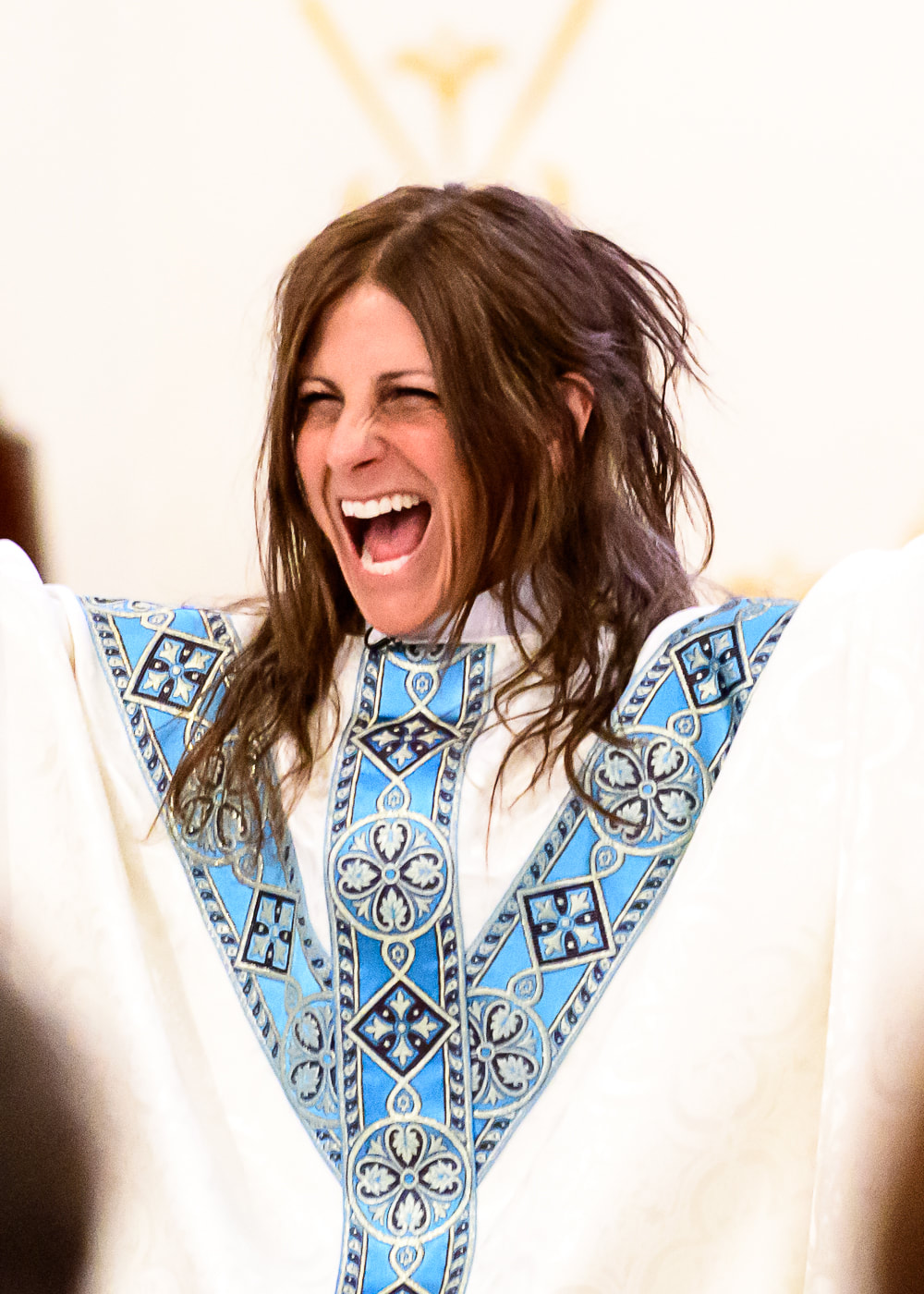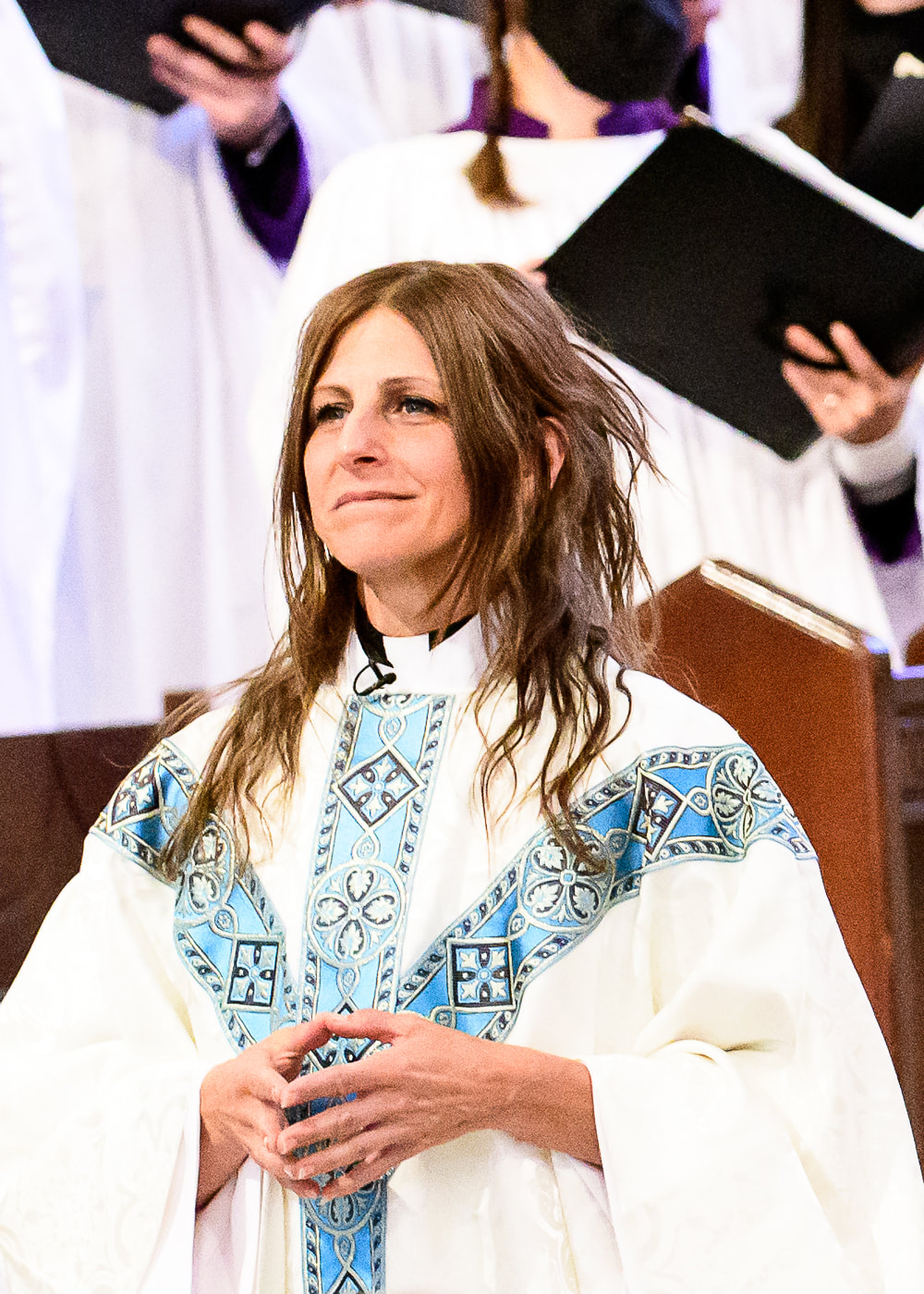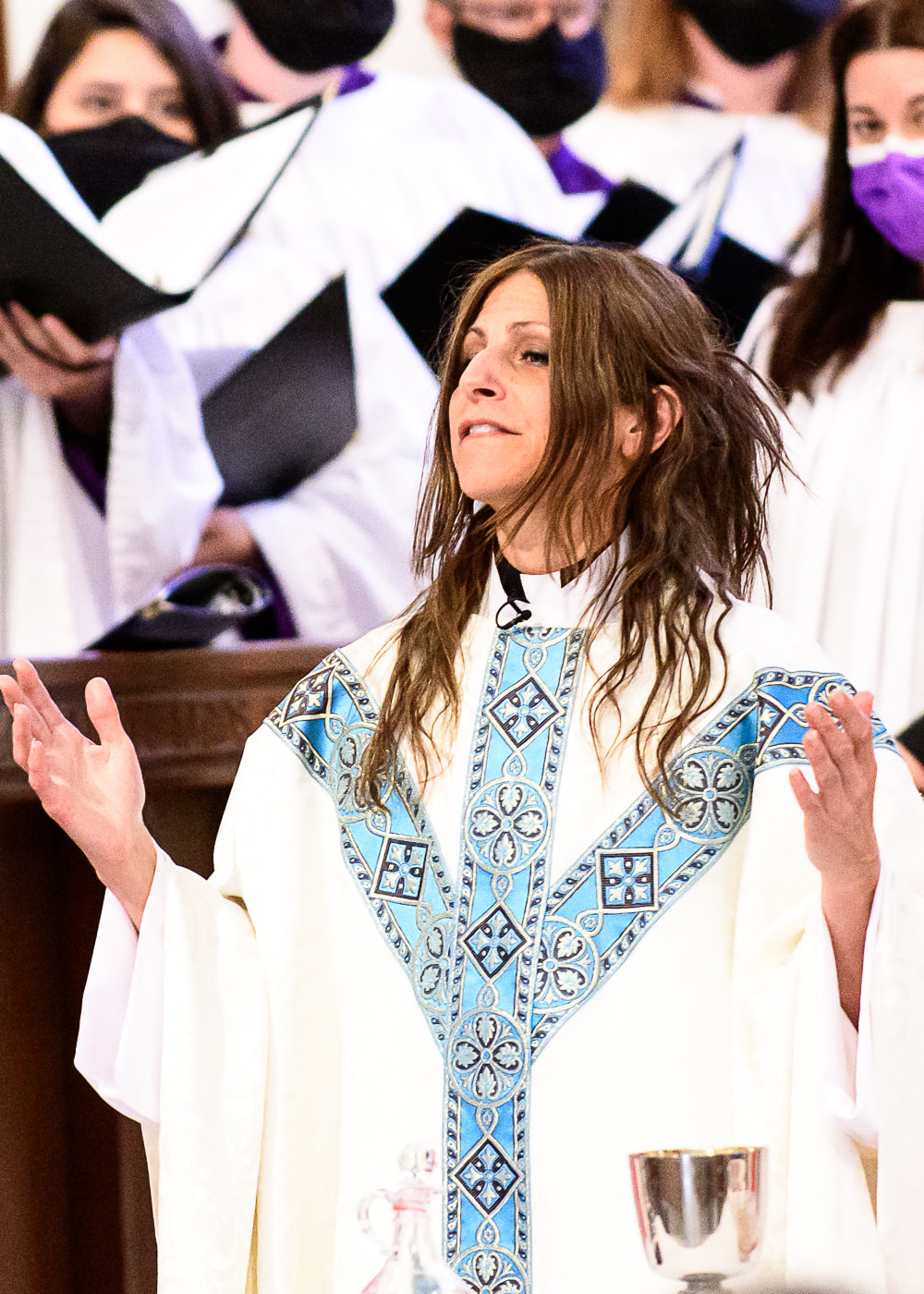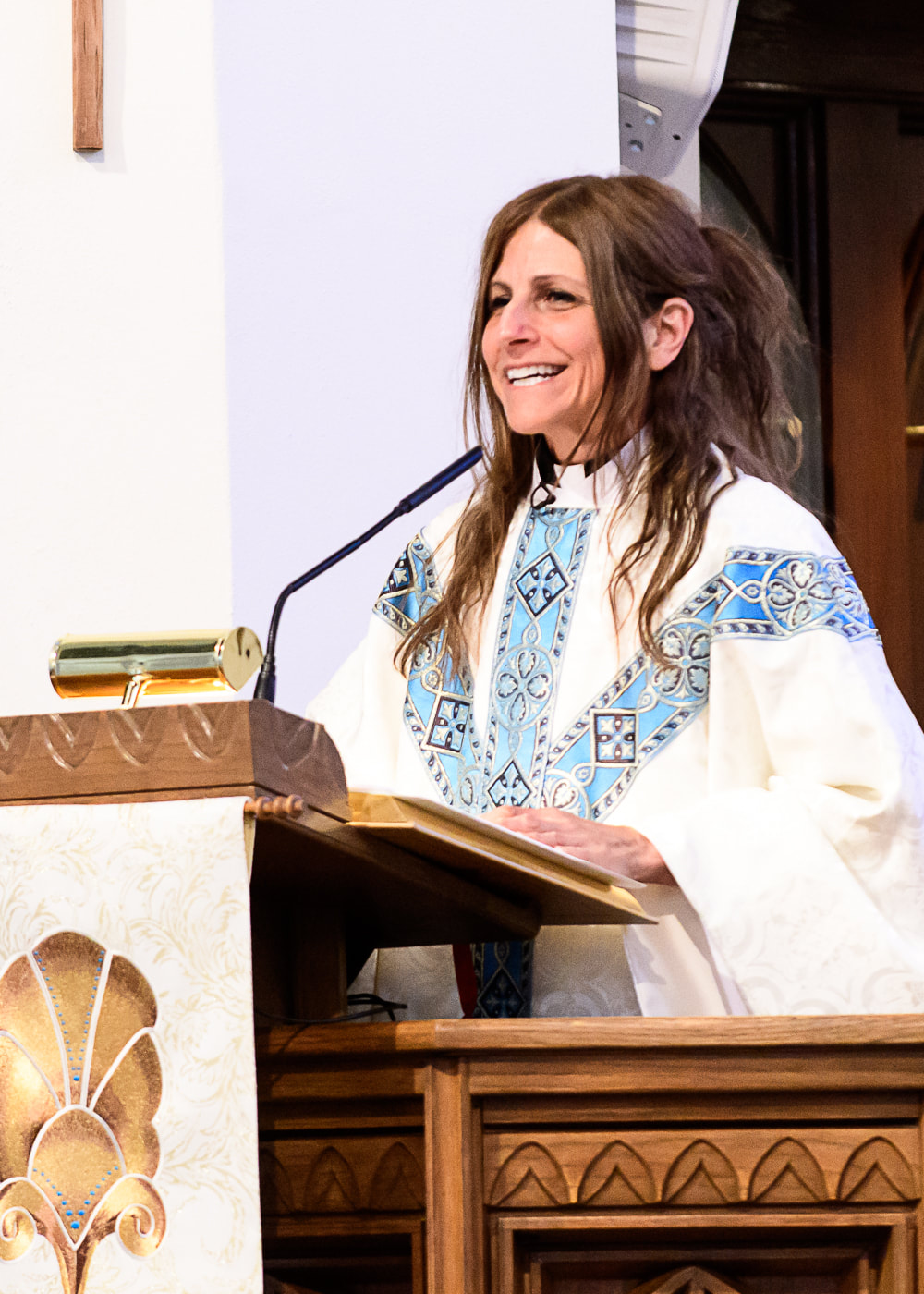Why Father Anne?The priest is one of the most powerful symbols in the Roman Catholic tradition. The priest symbol, like the sacraments, makes present often hidden realities of God so that we can encounter them more fully. For example, the priest makes present the relationship between God and Jesus, the relationship between Jesus and the Church, the mission of the Church to love as Jesus loves, the covenantal bond between God and God's people. God's action comes through the priest symbol to heal us, teach us, guide us, forgive us.
This symbol, however, is contracted in the Catholic imagination because it is embodied by the male form alone. In other words, its power is lopsided. We are robbed of a more full picture of God's nature, God's desires, and God's invitations to us as a Church. In addition, the symbol and its power to create encounter with God has been severely weakened by the ongoing sexual abuse crisis, the Church's role in colonization and slavery, and the ongoing dehumanization of women--all atrocities that obstruct the free flow of the Holy Spirit through the symbol. A central part of my ministry is to expand (and rehabilitate) this rich symbol with the female form. I am exactly like a traditional male Catholic priest--I am celibate, I wear clerics, I use the Roman Missal and its traditional Catholic prayers, I have a seminary education, and I go by the title "Father." The one difference between me and any male priest in the institutional Church is that I am a female. If I am doing exactly what a male priest does, what is it that women cannot do? I claim the symbol on behalf of all women everywhere, and provide the Holy Spirit the ongoing opportunity to harness this symbolic power and communicate God's desires for justice for women. In addition, with a traditional embodiment of the priest symbol, I harness the tradition of the Church and all of the rich teachings and values that lie at its heart, and turn it back onto the Church to call it to account for its ongoing violation of the covenant with God in it's treatment of women. My female form in a Roman collar makes present the reality that women are, and have always been co-equals to men. "Equal in dignity, separate in role" is a lie that ensures the subjugation of women in the sanctuary and everywhere else. No matter what the patriarchy says to deny this truth, the presence of the Holy Spirit through the priest symbol embodied by a female form is too powerful to be obstructed. I also symbolize the thousands of women across the world who would presently enter the priesthood as it now stands without requiring other changes, such as the ability to marry or an overhaul of the clerical structure now in place. While such examination of these issues is essential to the living tradition of the Church, there are many women who would enter the priesthood as it stands should canon 1024 be revised to include all baptized persons rather than simply males. In my wearing of the Roman collar and living out the traditional priesthood as it presently stands, God makes present the truth that there are many women around the world who would do the same. It turns out, that in addition to the layered symbolic work I do as Father Anne, an added benefit of using this title is that frankly it is "sticky." The title Father on a woman piques the curiosity of people both in and beyond the Church. It lovingly mocks the notion that women cannot serve as priests, while at the same time confirming that I am a real Roman Catholic priest--as real as any male priest. Why do you break the law?The exclusion of women from priesthood is an immoral, unjust law rooted in a fundamentalist interpretation of scripture, and a false narrative about the participation of women in the Church. It is that simple. Scholars have shown the history of women's leadership and women's ordination in the Church, and there is ever-increasing archeological evidence that reveals the liturgical participation of women in the early Church. While it is true that women have never been ordained in the same capacity as men, basic discernment skills reveal that a teaching of oppression and exclusion, which causes great moral, physical, and spiritual damage, simply cannot come from God.
The institutional Church forced me onto a parallel track at great cost to myself. After many long years of discernment, formation, deep struggle, and prayer, I had to ultimately choose between obedience to God and obedience to doctrine. I will always choose God. I was ordained through the Roman Catholic Woman Priest movement in 2021. Now a priest, my call within a call is to summon the Church to account for it's violation of the covenant. While some are tempted to interpret my ordination as a sign of disrespect for the institutional Church, in truth it is the greatest act of love and sacrifice I can make for the Church that I adore. An invitationIt can be difficult to discover that the Church is wrong on a particular issue. This is especially true because the institutional Church is masterful in presenting itself as eternal. In truth, however, the Church and its tradition has changed dramatically over its 2000-year existence. This is an undeniable fact of history. Changes include total reversals in doctrine on issues like religious freedom, the presence of truth in other religions, justification of slavery, and anti-Semitism. By pretending tradition doesn't change, the institutional Church does a great disservice to Catholics, making the Body of Christ ill-prepared for the deeper awakening that naturally occurs over time when we walk closely with God. It is a red flag for a community in relationship with a living God to never grow in understanding.
The reality is as human beings we can never know all there is to know about God or about the mystery of life because we are not God. There is always more to learn. This means we must cultivate the disposition to allow God's Holy Spirit to ever-deepen our understanding of what it means to be fully human in God's world. In other words, we must give the Holy Spirit the freedom to teach. To this end, I invite you to set aside your preconceived notions and attachments to how you think things are, and allow God the opportunity to teach you about this issue. Educate yourself on the ordination of women as priests. Read, learn, and especially, listen to the experience of women called to priesthood, and people of all genders who desire a fuller expression of the priesthood. Listen, learn, and take what you discover to prayer. |



